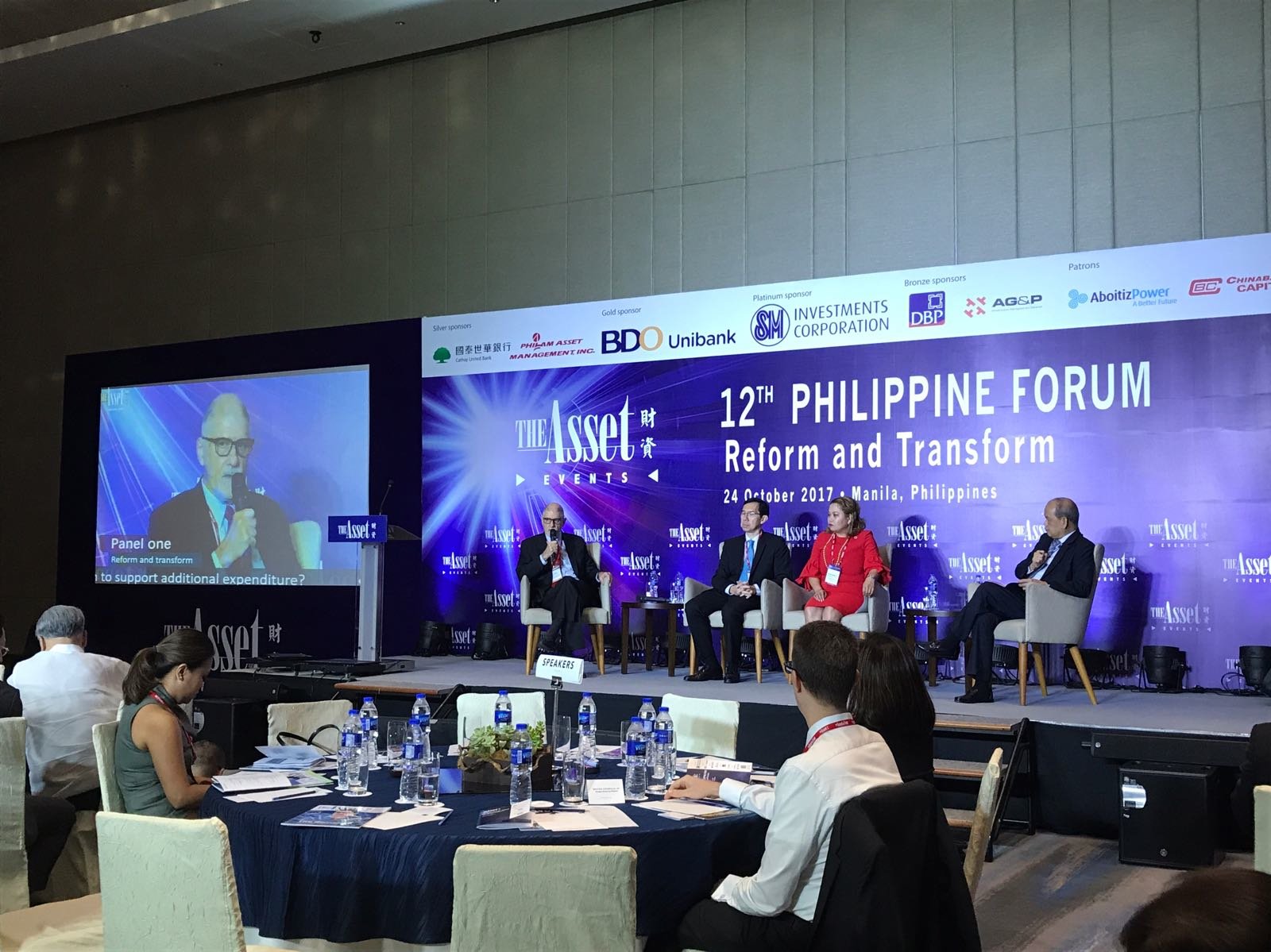
THE Philippine government may still require private funding through schemes such as private-public partnerships (PPP) in order to accelerate infrastructure development in the country, say industry officials.
They note that the government may have to take decisive steps on the financing route it wants to take to further the country’s infrastructure programme that has lagged those of neighbouring countries in the Southeast Asian region.
“Let’s get our infrastructure done whether ODA (Official Development Assistance) or PPP. It’s been 12 years,” Jose Teodoro Limcaoco, CFO at Ayala Corp, tells participants at The Asset 12th Philippine Forum at Conrad Hotel, Manila.
While he laments that the current route the government has taken may have alienated private funding support, he believes the private sector can be instrumental in helping the government achieve its infrastructure goals.
“With Build build build, we are outside the net,” says Limcaoco, referring to government’s plan to use public funds and overseas development assistance to finance infrastructure projects. “If tax reform can’t fill all the expenditure needed, government can turn to PPP,” he adds.
John Forbes, senior adviser at The American Chamber of Commerce of the Philippines agrees. “PPP can add 1% to government infrastructure spending,” he says.
With the government strategy of focusing on ODA funding, infrastructure spending has jumped to 5.3% of GDP in 2016 from an average 2.9% during the previous government. The ceiling on the budget deficit has been adjusted to enable a further increase in infrastructure spending to more than 7% by 2022.
The government has said it is seeking P140 billion from China to fund at least three flagship infrastructure projects. The amount will form part of the US$9 billion in official development assistance and commercial loans committed by Chinese President Xi Jinping to the Philippines during President Duterte’s visit to Beijing in October last year. The government also receives development assistance funding from other countries including Japan..
Finance undersecretary Antonette Tionko, who joins Limcaoco and Forbes at the forum's Reform and Transform panel, says the government intends also to fund the country’s infrastructure programme with public funds.
“We want to fund infrastructure with our own revenue also, not just borrowing,” says Tionko, adding that the Comprehensive Tax Reform Programme should address part of the government's funding requirements.
“Tax reform is all about simplification,” she notes. The country's tax reform package of 134 billion pesos (US$2.6 billion) is expected to be approved during the bicameral sessions at Congress in November.
“We should work together, whether ODA or PPP,” she adds.








